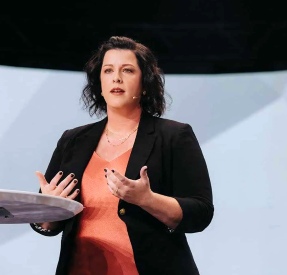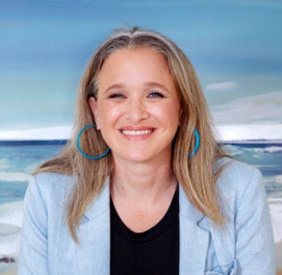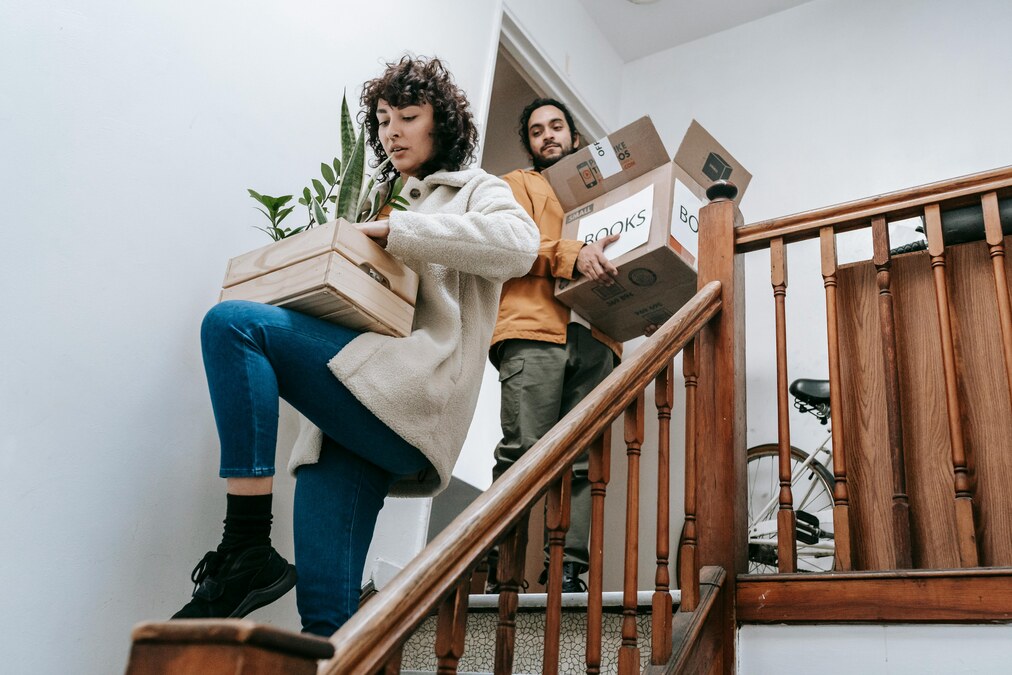
In 2023, I moved back in with my parents after years of living independently. The decision wasn't driven by financial hardship or personal setbacks - I had just landed a remote job after years of working in an office near my apartment.
With no need to stay close to work, I saw an opportunity: I could boost my savings by not paying rent while also spending more time with my family. So I thought, why not move back in?
However, for many young adults who moved out only to return, the decision is often a response to the overwhelming cost of living independently.
Young adult Aussies 'boomerang-ing' back home: Why?
Alexa*, 23, moved back in with her parents a year ago when she realised her stagnant salary as a marketing associate was no longer enough to cover her continuously rising rent and other ongoing expenses.
"I moved out of my parents' house when I started uni, and from then on I had been living independently with a roommate in an apartment in Fitzroy," she shared with InfoChoice.
But it wasn't until her finances were drained, leaving almost nothing for herself after bills, that reality hit her like a brick.
"I wanted to go on a trip with my friends, but when I checked my account, I realised I didn't have the money to do it - even though I hadn't been spending on anything other than rent, utilities, and daily necessities."
"So one weekend, I sat down and did the maths. I had no savings to speak of and was only working to cover my daily expenses.
"If I wanted to go on, say, a two-day holiday, I'd have to not eat for a week, maybe," Alexa said.
She was living paycheque to paycheque.
According to experts, economic necessity is the primary driver that pulls adult children back into their parents' homes.
"Job loss, unaffordable housing, or create financial vulnerability that makes the parental home more appealing," Dr Brooke Keels, chief clinical officer at Lighthouse Recovery Texas, told InfoChoice.
Dr Keels said returning home "provides psychological relief" from financial stress, even if the home environment wasn't the best growing up.

Dr Brooke Keels, LPC-MHSP (Image supplied)
Reason 1: Housing affordability
Living in an expensive Melbourne suburb, where median unit rents were currently $650 per week and asking rents have risen by double-digits per Domain, certainly didn't help Alexa.
"Almost 40% of my pay went to rent. I read somewhere that if you spent anywhere above 30% you're in rental stress. Well, I was for sure stressed," she added.
She's not alone.
InfoChoice, in a survey published in January 2024, found that more than two-thirds (70%) of renters in Australia were spending more than 30% of their gross income on rent, which is a common marker for rent stress.
And the generation most affected? Alexa's.
The survey found nearly three-quarters or about 73% of Gen Z renters were experiencing rental stress.
But despite - or perhaps because of - being dealt the worst hand, Gen Zs are also the most agile. Many are proactively reducing expenses, moving to smaller homes, or getting roommates to share costs.
The least popular solution, yet one taken by a small but significant group (2.3%), was to boomerang - move back in with their parents.
Reason 2: Cost of living pressures
A June 2024 report by Australian Seniors uncovered another unsurprising reason why adult children are returning to their childhood bedrooms.
The Empty Nesters Report found that two in five (39%) were returning home because they were struggling financially.
Beyond housing, other living expenses were straining their household budgets.
"In order for me to have money for the things I want to do, I decided to move back home," Alexa shared.
Fortunately for many boomerang kids, the majority of empty nesters are willing to welcome their adult children back to the nest if they are struggling financially, and most especially if they have nowhere to go.
Reason 3: Personal and relationship issues
Some adult Australians returning home cited relationship breakdowns (30%), including break-ups and separations, along with personal challenges, as their reasons.
Experts say that beyond the practical factors, parents' homes offer a sanctuary in times of crisis.
"When children return due to a need for comfort, reassurance or support - which is happening implicitly even when the surface reason appears more practical," said Dr Katie Kjelsaas, clinical psychologist and ICEEFT certified emotionally focused therapist supervisor.
"It may provide evidence that the parents did a good job at creating a safe haven and secure base to which their children feel welcome to return in a time of need."
And while our mums and dads would rather us out of the house, according to the 4-in-5 who said they preferred their already-moved-children develop independence, 42% of current empty-nesters would welcome their children back home if they were dealing with such problems.

Dr Katie Kjelsaas, clinical psychologist (Image supplied)
Adult children living at home in Australia
Boomerang kids are not a new phenomenon.
In the US, the Great Recession (2007-2009) accelerated this trend, with around a quarter of adult children returning to live with their parents due to economic pressures.
Although Australia is not in that place, despite the presence of upside risks, there is a noted increase in a generation of adult kids remaining in or returning to the parental home.
Data from the Australian Bureau of Statistics (ABS) revealed that in 2021, 54% of men and 47% of women aged 18-29 were still living with their parents.
Notably, the Australian Institute of Family Studies (AIFS) found a 7.7% increase in young men (18-29) living at home and a 10.8% increase in young women since 2001 due to several factors such as extended education periods, high housing costs, and economic pressures.
Multigenerational households - where multiple generations of related adults live together - have become increasingly common in Australia.
Census analysis by the City Futures Research Centre at UNSW found 20% of Australians live in a multigenerational home, reflecting significant shifts in societal norms and demographics - and perhaps destigmatising living in the family home when you're expected to move out.

Moving back home doesn't mean you've failed in life.
Shedding the stigma of moving back home as an adult
Fallouts from Covid saw the average household size fall to a historic low of 2.49 people per household by January 2023, according to RBA data - now the reverse swing appears to be happening.
Living with family into adulthood is common in Asian, Middle Eastern, and Southern European cultures - but not historically in Australia. While comprehensive post-Covid data is still emerging, early indicators suggest that the pandemic may have accelerated this trend and that the stigma towards multigenerational living is changing.
Economic uncertainties, job losses, and the ongoing shift towards remote work during Covid-19 have prompted more young adults to return to or remain in the family home.
"Typically, ubiquity drives acceptability: as more people do something the social norm shifts and the behaviour becomes more acceptable as we habituate to the new thing," Dr Kjelsaas explained.
"In this case it seems that cost of living pressures and housing affordability may increase the perceived acceptability of young people staying or returning home.
"As most Australians can relate to these financial pressures, they are perhaps more likely to feel empathy for young people who feel a need to move backward (home) in order to go forward, financially."
Despite the shifting dynamics - largely driven by necessity - the stigma persists.
"Many people don't realise that boomerang kids often experience higher levels of stress and anxiety than their peers who remain independent," said Dr Nivedita Nayak, a psychologist who specialises in family dynamics and life transitions.
"They may feel as though they have failed even when their return home is temporary and necessary."
Dr Nayak strongly advises parents to treat their children as an independent adult rather than a dependent, encouraging autonomy while still providing support.
And to those reluctant to take the step back to their family home because of societal expectation and internalised beliefs about independence, experts recommend "reframing" the transition as strategic rather than shameful.
"[The] general perception that moving back home as an adult represents failure couldn't be further from the truth," Dr Keels said.
"Struggling with unstable housing or overwhelming debt can be devastating to young adults still developing their professional identity and there's nothing wrong with seeking help from our loved ones," she added.
"The temporary support allows them to build financial stability and make more deliberate career choices without the pressure of immediate survival needs."
According to Dr Keels, young adults who return to their parents' homes often experience improved mental health because "the support system reduces financial stress which is a major trigger for anxiety and depression".
How does the return of adult children impact family dynamics
Regardless of the willingness or lack of options for either parties, adult children boomeranging to their parents' homes can have a huge impact on the family dynamics.
Parents recalibrate retirement plans
With their once empty nests full again, close to half of those who welcomes their adult kids back said they had to make a few sacrifices to accommodate their children's return.
Some parents surveyed by Australian Seniors had to repurpose rooms they were using for other things, such as a new hobby they've pursued since their kids moved out.
Others had to recalibrate their daily schedules in consideration of their children's routines, while some said they had to eat out less and delay travel plans as their disposable incomes were reduced to account for additional expenses.
Finally, over 1-in-4 said they would likely delay or altogether resist downsizing in case their children move back in.
Read also: Guide to downsizing as a senior
Intergenerational tension and disagreements
The children parents welcoming back home usually are not the same children that left the nest, and the unwillingness or inability to redefine relationships and roles can result in increased tension and disagreement.
"Many parents unconsciously revert to old parenting patterns and start treating their adult children similarly to how they parented them in their youth, which can undermine their child's sense of autonomy and self-worth," Dr Keels said.
When a household regresses to the former parent-child dynamic, experts said it could trigger defensiveness and conflict, making the living arrangement stressful for everyone involved.
"Parents who expect adult children to conform to the same house rules as they did as teenagers may meet resistance," Dr Kjelsaas said.
"And adult children who fail to respect their parents as the owners of the home may create similar difficulties."
The family becomes closer
Still, it's not all bad.
"While the adjustment can be challenging, when handled well, this phase of life can actually strengthen relationships," Dr Nayak said.
Living under the same roof once more, parents and their adult children may develop a more mature and respectful connection.
"Families who take time to set boundaries, talk openly about finances and responsibilities, and respect personal space often find their relationships improve, even after their child moves out again," Dr Nayak added.

Setting healthy boundaries and keeping communication open are vital in households with boomerang children.
How to set healthy boundaries at home
"Of course there will be friction."
Dr Keels, along with other experts we spoke with, acknowledge the challenges a living arrangement where an adult child moves back home to their parents may bring.
"Tension typically emerges around boundary issues and role confusion between parents and their children, and parents struggle to view their child as an independent adult," Dr Keels explained.
In such cases, keeping communication open and setting healthy boundaries are key.
"I often tell parents, 'This is a time to redefine boundaries and expectations, not just for your child, but for yourself too.'," shared Kristie Tse, a licenced psychotherapist and founder of Uncover Mental Health Counseling.
"It's about fostering mutual respect and finding a balance between offering support and encouraging their independence," she added.
"At the same time, I remind families that open and honest communication is key - talk about finances, responsibilities, and how to share the space in a way that works for everyone."
Is the boomerang trend here to stay?
Whether the trend of adult children moving back home is just a temporary response to current economic conditions, only time will tell.
Dr Keels argued parent-child living arrangements "will persist while economic conditions remain challenging".
"But I definitely believe it is reshaping Australian views of independence and adulthood and presenting some important challenges for parents eager to balance provision of support and with fostering agency and independence in their children," Dr Kjelsaas opined.
"Creativity and wisdom is required for families to work out how boomerang support can be a genuine hand up, rather than a hand-out to returning children," she added.
And while I did enjoy the extra disposable income I gained from not paying rent and moving back in with my parents, I knew living independently at my own place - as long as I could afford it - was the better choice for me.
Header and in-text images by Freepik and Blue Bird on Pexels
*name withheld by request


